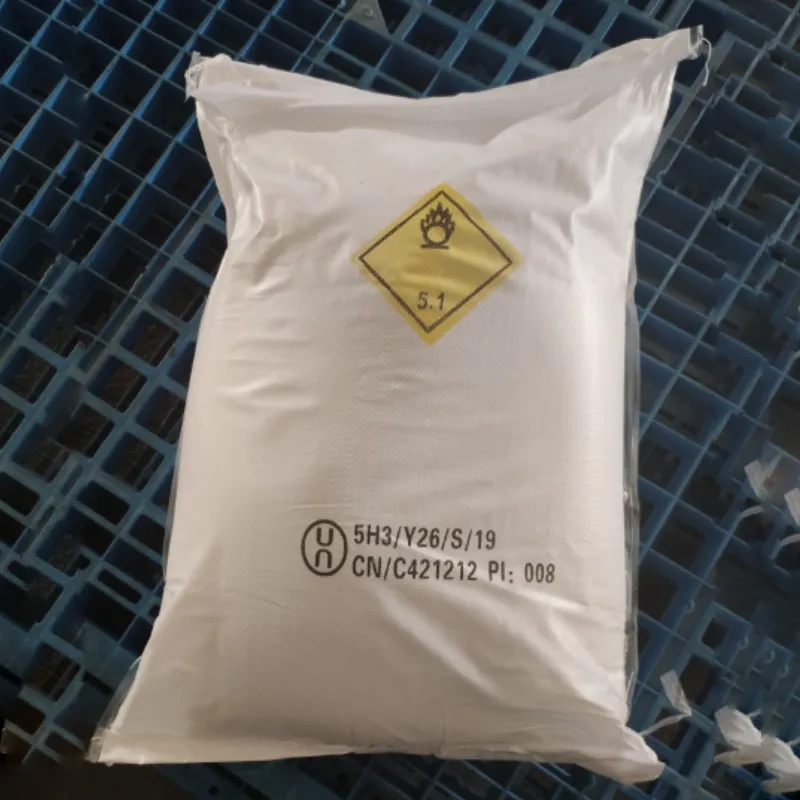
e 472 emulsifier
Understanding E472 The Multifaceted Emulsifier
In the world of food production and processing, emulsifiers play a crucial role in enhancing the texture, stability, and appearance of various products. One such emulsifier frequently encountered in ingredient lists is E472. This article delves into E472’s nature, functions, sources, and implications for health and food safety.
What is E472?
E472 refers to a group of esters of glycerol and fatty acids, which are primarily used as emulsifiers. An emulsifier is a substance that helps mix two immiscible liquids, such as oil and water, creating a stable emulsion. E472 encompasses various subtypes, including E472a (mono- and diglycerides of fatty acids), E472b (glycerol esters of fatty acids), E472c (acetylated mono- and diglycerides), and several others. Each subtype has unique properties and applications, but they all share the common role of stabilization in food products.
Sources and Production
E472 is generally derived from both natural and synthetic sources. The fatty acids used in its production can be obtained from animal fats or plant oils. Common plant-based sources include palm oil, soybean oil, and canola oil. The production process typically involves reacting glycerol with fatty acids under controlled conditions to create the desired emulsifier.
Considering the increasing demand for plant-based and vegan products, the preferences for sourcing E472 have shifted toward vegetable sources. This makes E472 a popular choice for manufacturers looking to accommodate diverse consumer preferences and dietary restrictions.
Functions in Food Products
The versatility of E472 makes it a valuable ingredient across various food categories. Its primary functions include
1. Emulsification E472 helps to stabilize emulsions, preventing the separation of oil and water phases. This is particularly important in products like salad dressings, mayonnaise, and sauces, where a smooth and consistent texture is desired.
e 472 emulsifier

2. Improvement of Texture E472 contributes to the mouthfeel of food products, enhancing creaminess and overall sensory experience. It is commonly utilized in products such as ice cream, margarine, and baked goods.
3. Extending Shelf Life By stabilizing emulsions, E472 can help extend the shelf life of products, reducing the likelihood of spoilage due to separation or degradation.
4. Facilitating Ingredient Integration In complex formulations, E472 aids in blending diverse ingredients, ensuring even distribution of flavors, colors, and nutrients.
Safety and Regulatory Status
E472 has been evaluated by various safety authorities, including the European Food Safety Authority (EFSA) and the Food and Drug Administration (FDA) in the United States. As of the last evaluations, E472 is generally recognized as safe for consumption when used in appropriate quantities. However, like any food additive, its consumption should be moderated within a balanced diet.
While E472 is widely accepted, some consumers express concerns regarding food additives in general, stemming from a desire for clean-label products. As awareness and demand for transparency in food ingredients continue to grow, manufacturers may face pressure to reformulate products or clearly communicate the presence of additives like E472.
Conclusion
E472 serves as a multifunctional emulsifier, playing an essential role in the food industry by enhancing texture, stability, and overall product quality. Derived from both natural and synthetic sources, its application spans a wide range of food products, making it a staple ingredient for many manufacturers. While it is generally recognized as safe by health authorities, ongoing consumer interest in clean labels and ingredient transparency may impact its use in future formulations.
Understanding the role and function of emulsifiers like E472 is vital not only for industry professionals but also for consumers interested in making informed choices about the food they consume. As the conversation around food additives evolves, staying informed about ingredients and their implications can lead to healthier, more conscious eating habits.
-
The Safety Challenges of Ammonium Nitrate FertilizerNewsJun.26,2025
-
The Critical Role of Mining ChemicalsNewsJun.26,2025
-
Shelf Life of Glacial Acetic Acid Food GradeNewsJun.26,2025
-
Enhancing PVC Longevity with 1,2,3-Benzotriazole InnovationsNewsJun.26,2025
-
China’s Dominance in Food Additive ProductionNewsJun.26,2025
-
Can Aluminum Hydroxide Replace More Toxic Alternatives?NewsJun.26,2025
-
PE and PP Plastics with Benzotriazole AdditivesNewsJun.12,2025
Hebei Tenger Chemical Technology Co., Ltd. focuses on the chemical industry and is committed to the export service of chemical raw materials.
-

view more DiethanolisopropanolamineIn the ever-growing field of chemical solutions, diethanolisopropanolamine (DEIPA) stands out as a versatile and important compound. Due to its unique chemical structure and properties, DEIPA is of interest to various industries including construction, personal care, and agriculture. -

view more TriisopropanolamineTriisopropanolamine (TIPA) alkanol amine substance, is a kind of alcohol amine compound with amino and alcohol hydroxyl, and because of its molecules contains both amino and hydroxyl. -

view more Tetramethyl Thiuram DisulfideTetramethyl thiuram disulfide, also known as TMTD, is a white to light-yellow powder with a distinct sulfur-like odor. It is soluble in organic solvents such as benzene, acetone, and ethyl acetate, making it highly versatile for use in different formulations. TMTD is known for its excellent vulcanization acceleration properties, which makes it a key ingredient in the production of rubber products. Additionally, it acts as an effective fungicide and bactericide, making it valuable in agricultural applications. Its high purity and stability ensure consistent performance, making it a preferred choice for manufacturers across various industries.











